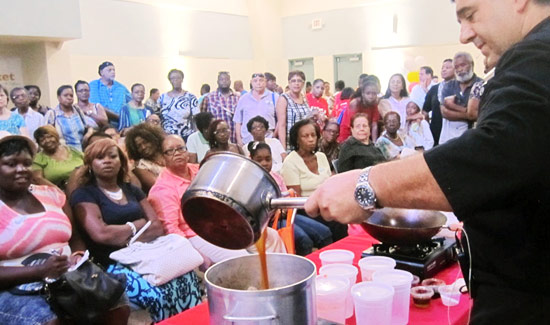NASSAU, The Bahamas — Discussions surrounding the viability of pharmacovigilance and the establishment of a Pharmacovigilance Centre in The Bahamas will headline a major pharmacy lecture and workshop scheduled for New Providence.
Hosted by the Bahamas Pharmacy Council (BPC), in conjunction with the Pan American Health Organisation (PAHO) and the Ministry of Health, the lecture will take place on Tuesday, February 8, while the workshop will be held Wednesday and Thursday (February 9 and 10) as part of the Council’s Week of Activities celebrating its first-year anniversary.
A Health Fair has also been scheduled for Centre Court, Mall at Marathon, on Saturday, February 12, 2011. BPC Chairman Philip Gray said the discussions are part of a broader scope that will lead to the establishment of a Pharmacovigilance Centre in the Commonwealth of The Bahamas.
Similar centres have already been established in more than 200 countries regionally and worldwide.
“We want to be on the cutting edge on this kind of initiative and join some of the other countries in the region and indeed the world who have established Pharmacovigilance Centres,” Mr. Gray said.
Pharmacovigilance is the science relating to the detection, assessment, understanding and prevention of adverse effects, particularly long term and short term side effects, of “Pharmaceutical drug” medicines.
Generally speaking, it is the science of collecting, monitoring, researching, assessing and evaluating information from healthcare providers and patients on the adverse effects of medications and traditional medicines, among others, with a view to identifying new information about hazards associated with medicines in an effort to prevent harm to patients. It is particularly concerned with adverse drug reactions (ADRs) which are described as: “A response to a drug which is noxious and unintended.”
Mr. Gray said the establishment of a Pharmacovigilance Centre in The Bahamas will be a “giant step” in the further development of the pharmacy profession and industry in the country, and will also serve to ensure that patients receive the best medication available to them for the treatment and management of their conditions, in addition to having a place to report any adverse reactions to medications that can be acted upon. Mr. Gray said while “modern medicines” have led to major improvement in the treatment and control of diseases and illnesses, they also produce adverse effects on the human body from time to time.
While many drugs are “precisely targeted” to the causes and mechanisms of disease, they may also have “minor or distressing effects” on other parts of the body, or interact negatively with the systems of the particular individual or with other drugs or substances they are taking, or not work well or at all for some, many or all of those who take them for illness. Mr. Gray said evidence continues to mount that adverse reactions to medicines are a common, yet preventable, cause of illness, disability and even death.
“In some countries, adverse drug reactions rank among the top 10 leading causes of mortality,” Mr. Gray said.
“Aside from the intrinsic dangers associated with products themselves, individual patients may exhibit particular and unpredictable sensitivities to certain medicines. In addition, if more than one medicine is prescribed, there is always a risk of negative interactions.”
Mr. Gray said the selection and use of the best and safest medicines for a given individual, granted the many choices available, requires considerable skill on behalf of the prescribing practitioner.
He said the discussions at the special lecture and workshop will address these issues while bringing pharmacists, physicians, pharmaceutical representatives and other medical professionals up to speed on the role they will play once the centre has been established. The workshop will be conducted by Dr. Luis Castro of the PAHO Office in Washington, D.C., United States of America, and Dr. Adriana Ivamna, PAHO/World Health Organisation (WHO), Barbados.
“In order to prevent or reduce harm to patients and thus improve public health, mechanisms for evaluating and monitoring the safety of medicines in clinical use are vital,” Mr. Gray said.
“In practice this means having in place, a well-organised pharmacovigilance system in place for monitoring and evaluating ADRs, which is a key component of effective drug regulation systems, clinical practice and public health programmes,” Mr. Gray added.
By Matt Maura
Bahamas Information Services



